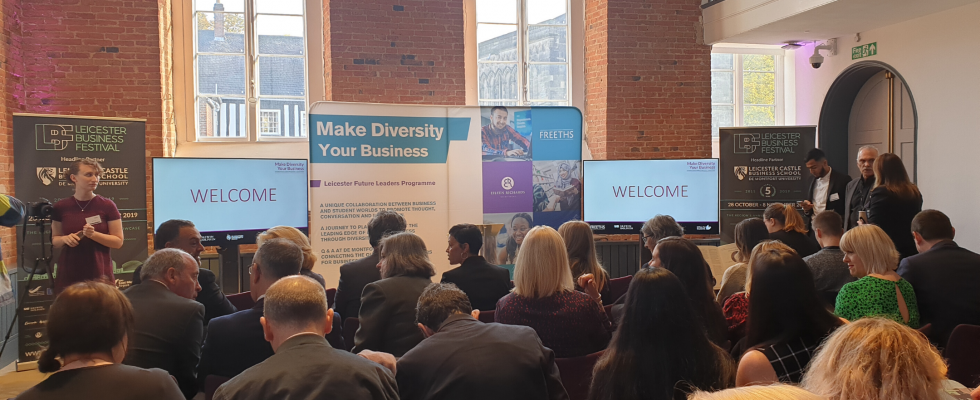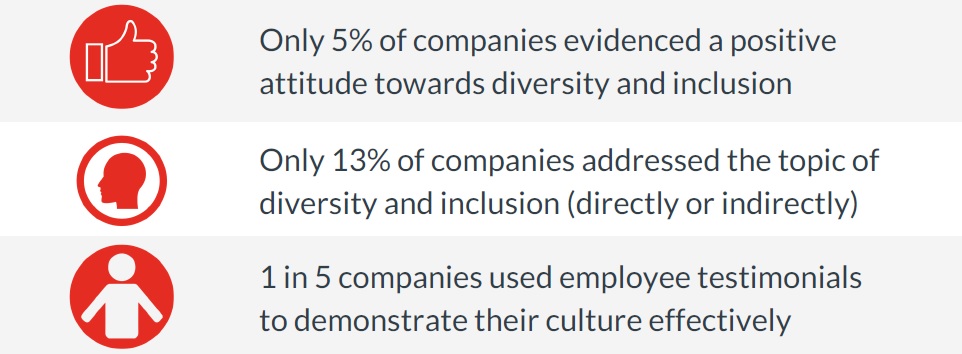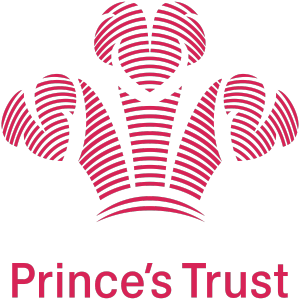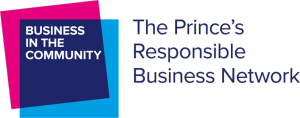
Leicester Future Leaders: Youth Employment Accessibility Report
Our interns, Adil and Omar, have been working on a research project looking at the perceptions of black, Asian, ethnic minority (BAME) students on applying for jobs online and their views on diversity in the workplace.
Today we officially launched the report from this project at the Leicester Business Festival event at De Montfort University’s Castle Business School.
About the Leicester Future Leaders project
The Leicester Future Leaders project is a 3-year programme being led by De Montfort University (DMU), awarded £230,000 funding from the Office for Students to increase diversity amongst business leaders across the region. The programme aims to increase diversity within the workforce of local businesses and increase the numbers of black, Asian and minority ethnic (BAME) groups getting internships and jobs with businesses across the region and create more opportunities for high-skilled work in the local economy.
Access Generation has been commissioned by DMU to validate our existing youth employment accessibility research and young people’s criteria for choosing an employer exclusively working with young people from the BAME communities. As diversity and inclusion is one of the top three criteria for young people when choosing an employer, we wanted to support this project and put our work to the test with BAME students. Download the report or simply read the executive summary below to get an overview of what we found.
Executive summary
This report seeks to validate the work of Access Generation, delivering research designed and delivered by young people and to ensure it adequately reflects the views of young people from the black, Asian minority ethnic (BAME) community.
This work also seeks to understand the criteria that BAME young people apply when choosing a prospective employer. The research and intern project validated the work of Access Generation and highlighted that the majority of companies do not effectively address diversity and inclusion in a way that would be recognised by young BAME people.
Companies commonly include policies on equality, modern slavery and gender pay gap (this is a legal requirement for companies with over 250 employees) but go no further into the topic of diversity and inclusion. There is a gap between the expectations, wants and needs of BAME young people and what businesses say about themselves.
This clearly is an issue as BAME young people do not feel the opportunities are there for them to access or progress in the workplace. This is an issue that may make people feel uncomfortable but we believe it needs to be addressed.
Companies and organisations that seek to understand and embrace inclusivity and diversity will be in a position to access a wider pool of talent that they might currently be missing out on. It does not involve an investment in money but empathy and care ensuring that unconscious or conscious bias is removed from the recruitment process.
Headline results

Our sponsor’s commentary
 “The Leicester Future Leaders project 2019-22 is about bringing the student voice into dialogue with business to achieve future change.
“The Leicester Future Leaders project 2019-22 is about bringing the student voice into dialogue with business to achieve future change.
Access Generation’s work in this space is helping us understand our starting point and how we will measure success. Access Generation have engaged young people directly to plan and carry out research into the accessibility of small and medium sized enterprises for BAME students and graduates seeking work. Both the questions and responses are therefore framed from a young person’s perspective, advancing the discussion from the outset.
A big thank you to Access Generation and graduate interns Adil, Omar and Suraya for their work on this research. We look forward to continuing working together as we create Leicester and Leicestershire’s toolkit for the inclusive attraction, recruitment and retention of graduate employees in the region, helping the economy to thrive.”
Adele Browne, Head of Careers and Employability – De Montfort University















